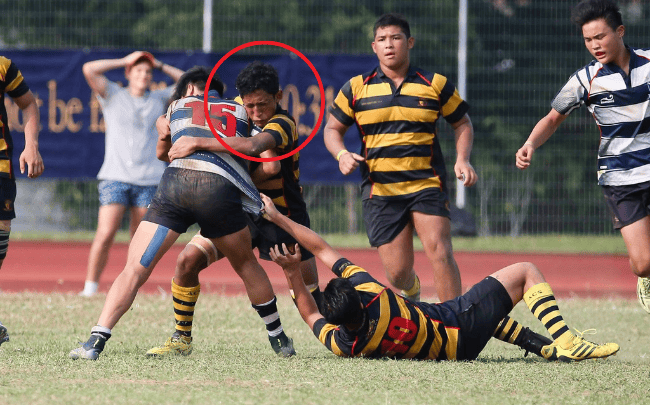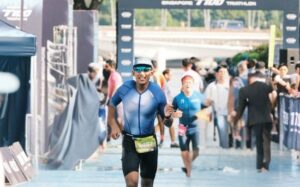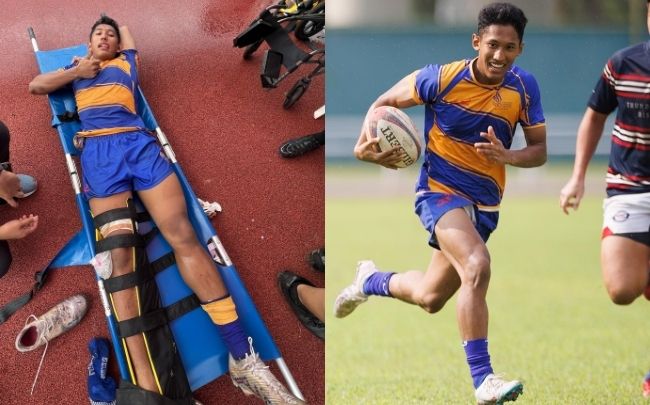
13 Jun He Gave It All Up – For Something Greater
For most of his life, rugby was everything to Solihin. The hits, the brotherhood, the legacy – it shaped his identity, his values, and his path. But when his body began breaking down, and the injuries refused to stop, Solihin did something few athletes dare to do: he walked away from the game that made him – and found a new kind of fire in the world of Triathlon.
What followed wasn’t just a change in sport. It was a transformation in mindset, lifestyle, and purpose.
Where it All Began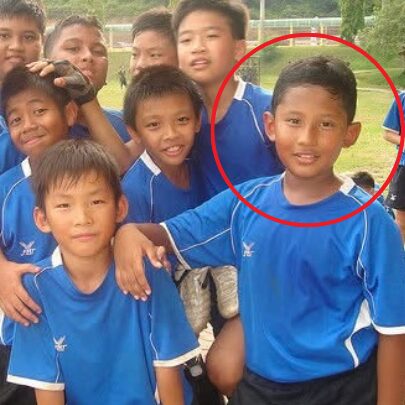
“My first rugby memory wasn’t even on the field – it was on TV. I was watching the NRL, a match between the Dragons and the Sharks back in 2006. I was immediately drawn to the intensity and the physicality, even before I understood the rules.”
From the moment he saw that game, something clicked. A year later, he transferred to a school without football, took a chance on rugby – and never looked back.
“A huge part of picking up rugby was family – my uncle and cousin played rugby, and I wanted to follow in their footsteps. On top of that, my grandfather was an ACS boy, and that made me even more determined to play rugby and represent his alma mater – one of the powerhouses of Singapore schoolboy rugby. So I did.”
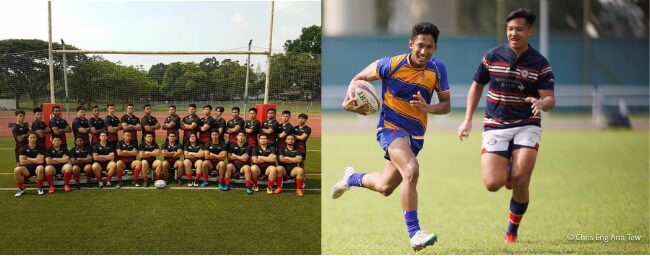
Solihin remembers his first tackle vividly, the aches that followed, and the joy that came with it. He quickly rose through the ranks, representing Chongzheng Primary, ACS(I), Temasek Polytechnic, the National Team age group, and the Police Force Team.
He was never the flashiest player, but he was known for his gritty defense and relentless work rate – earning him the nickname “The Rottweiler” from rugby parents.
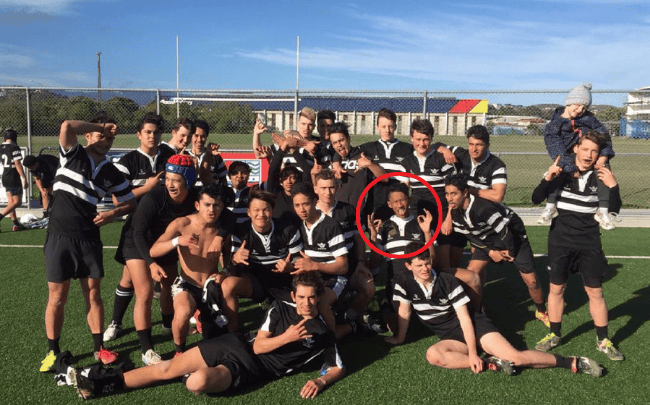
A pinnacle moment came when he was selected to train and play in New Zealand at Hutt Valley High School.
“It felt like everything was falling into place – I was playing overseas, surrounded by a strong rugby culture, and I genuinely believed I was on the path to something greater. But that was also where everything changed.”
A torn rotator cuff during a match became a turning point – his third serious injury, and a blow to his confidence that signaled deeper questions ahead.
Leaving the Game
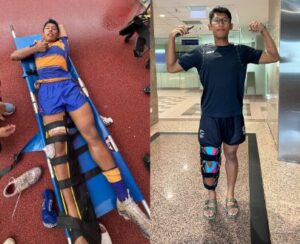
The injuries didn’t let up. They stacked up over time—fractured finger, strained hips and glutes, torn MCL – not once but twice. The final blow came on 2 June 2024. Sitting on the ground after re-tearing his MCL, Solihin realised he had reached his limit. The drive to keep going was still there—but his body had drawn the line.
What made the decision harder was knowing he still had more to give. But training became inconsistent, plays slipped by, and he felt increasingly disconnected from his teammates. He wasn’t just stepping back from a sport—he was walking away from a community.
And so, he turned to something new. Triathlon offered a different kind of challenge. Less about team tactics, more about personal accountability.
Learning to Breathe Again
The steepest learning curve? Swimming.
Having barely swum since a water safety course over a decade ago, Solihin found himself clocking 3 minutes per 100m. It was humbling. Progress was slow—and just when motivation peaked, his first race, scheduled on his birthday, had to be missed due to work obligations.
It was a gut punch. After weeks of training and mental preparation, being told he couldn’t race left him adrift. Training stopped. Content creation paused. Touch Rugby—his comfort zone—suddenly looked tempting again.
But rather than revert, he regrouped. He picked a new goal—Ironman 70.3 Western Sydney—and channeled his frustration into fuel.
Bringing Rugby Grit to Endurance Sport
What rugby gave him—resilience—is now what powers his triathlon journey. It’s not about showing up for a team anymore, but for himself. The structure is different: no warm-ups with teammates, no locker room banter, no shared huddles. Just the discipline of daily training—before work, during breaks, late at night. From three sessions a week, he now trains nearly every day. It’s less social and more solitary. But in the quiet, he’s found something grounding: progress that’s entirely his own.
Moments of Meaning
Though Solihin hasn’t completed a full triathlon yet, he’s already lined up at events like the MetaSprint Series and the Singapore T100. At T100, crossing the finish line left him both in pain and beaming with pride. Seeing his partner cheering at the end made it unforgettable.
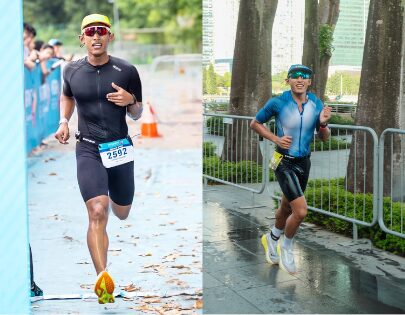
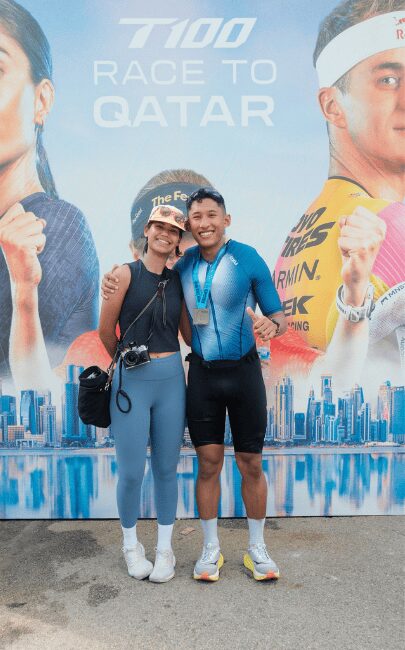
Later, he learned he placed sixth in his age group at T100—a clear marker that the work he was putting in was starting to pay off.
Redefining Identity and Passion
This journey has taught him more than just how to swim or cycle. It’s changed how he sees himself.
Where rugby once defined his identity—anchored in brotherhood and shared wins—triathlon has helped him discover the power of solo accountability. There’s freedom in being responsible only to yourself, and growth in doing the hard things alone.
Passion, he’s come to believe, isn’t always loud. Sometimes, it’s the quiet choice to show up for a 5 a.m. swim when you’d rather sleep in.
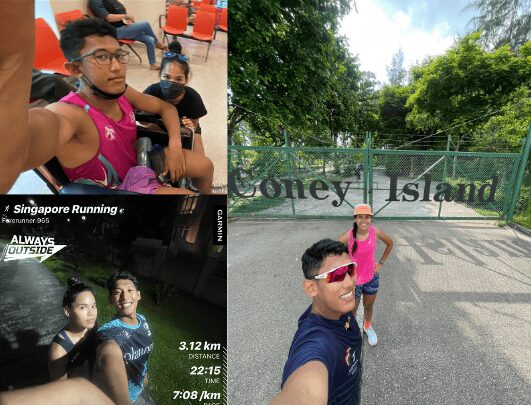
Facing Doubt and Choosing Drive
Swimming remains his biggest challenge—physically and mentally. But he’s developed his own mantras:
- Stay far enough outside your comfort zone that you forget the way back.
- Be delusional enough to believe you can. Be disciplined enough to prove it. That’s how you win.
Support from his partner has also kept him grounded. She trains with him—running, cycling, lifting—and reminds him that even in solo sports, you’re never entirely alone.
What’s Next?
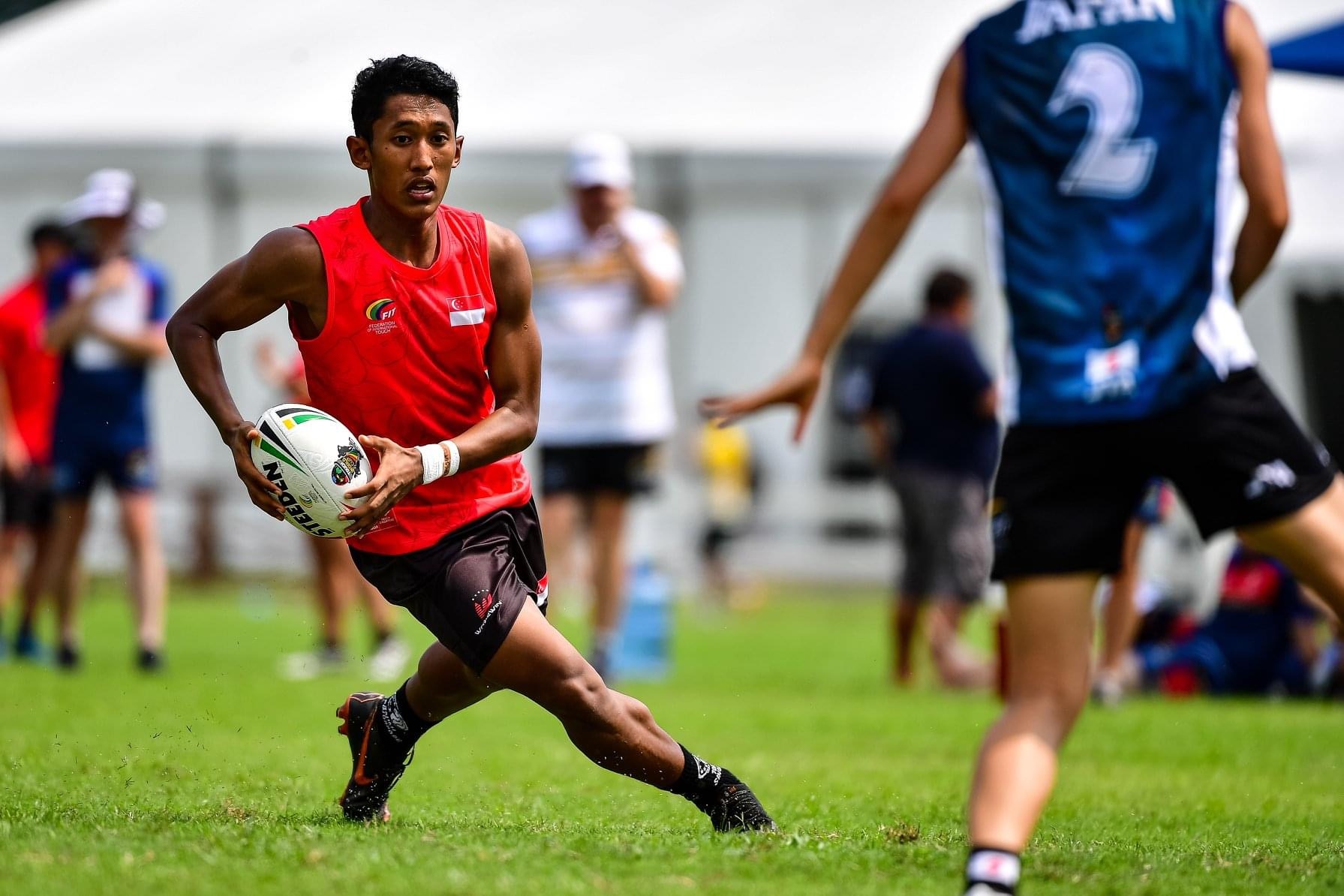
For now, all eyes are on Ironman 70.3 Western Sydney. He’s not just aiming to finish—he wants to qualify for the World Championship. And he knows it might take years, but he’s in it for the long haul.
He hasn’t closed the door entirely on rugby—if Touch makes the 2032 Brisbane Olympics, he just might lace up again. But for now, triathlon is where his purpose lies. The sport’s lower injury risk and self-managed nature offer a kind of control and clarity that he craves.
A Final Message
To anyone standing on the edge of change, unsure whether to leap:
“If you’re thinking of changing paths—just do it. Especially if it scares you.”
He’s a believer of stepping outside your comfort zone and that pain, when paired with purpose, becomes growth.
When he left Rugby for Triathlon, he struggled. He doubted himself. But through that discomfort, he found fulfilment – earned on his own terms.
“So, move forward, even if it’s messy. So far outside your comfort zone that you forget how to go back…You’re not abandoning who you were—you’re becoming who you’re meant to be.”

